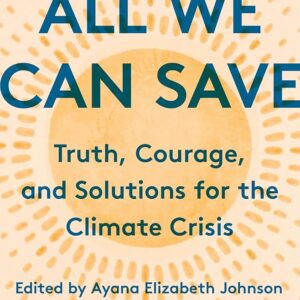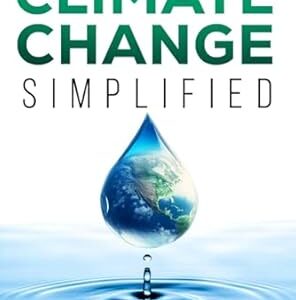Data Analytics Dashboard
The dashboard is designed to track climate data, deforestation rates, and forest health specifically for the Congo Basin would focus on several key aspects relevant to the region, which is home to the second-largest tropical rainforest in the world. Here’s how the dashboard could be tailored:
Resources And Library
Our resource library is your gateway to a wealth of carefully curated materials designed to inform, inspire, and empower individuals, communities, and organizations to take meaningful action against climate change.
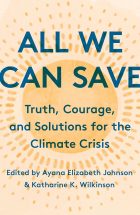
BOOK TITLE: ALL WE CAN SAVE
All We Can Save illuminates the expertise and insights of dozens of diverse women leading on climate in the United States–scientists, journalists, farmers, lawyers, teachers, activists, innovators, wonks, and designers, across generations, geographies, and race–and aims to advance a more representative, nuanced, and solution-oriented public conversation on the climate crisis

BOOK TITLE: THE GREEN BOOK
The book explores symbols of transformation, myths and futures; and is structured to encourage regular reflection. Each contributor brings their own perspective – green politics, change and loss, climate change denial, consumerism and our connection to nature.
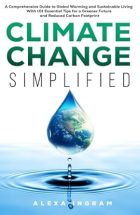
BOOK TITLE: CLIMATE CHANGE SIMPLIFIED
Only when the last tree has been cut down, the last fish been caught, and the last stream poisoned, will we realize we cannot eat money.”
This simple yet sobering truth holds a mirror to our society’s unsustainable trajectory. A trajectory that threatens the beauty, diversity, and vitality of our shared home.
Project Showcase
These projects are not just ideas—they are real-world solutions that are making a tangible difference in the fight against climate change, deforestation, and environmental degradation.
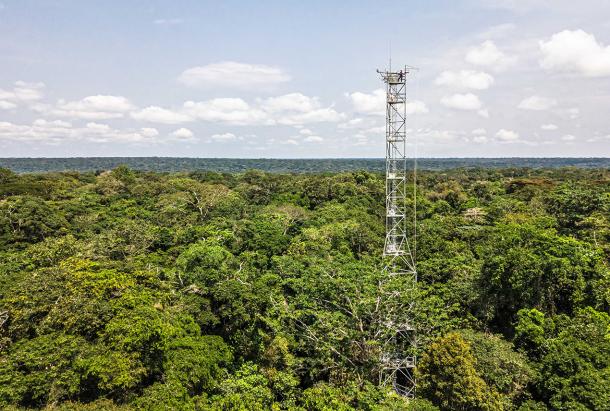
Congo Basin Forest Fund (CBFF) Projects
Description: Launched in 2008, the CBFF supported over 40 projects aimed at reducing deforestation and forest degradation while improving the livelihoods of local communities. The projects focused on sustainable forest management, promoting alternative livelihoods to logging, and enhancing local communities' resilience to climate change. Key Impact: Helped mitigate climate change by conserving forests and reducing emissions from deforestation. Several projects involved the promotion of agroforestry and sustainable agriculture practices. Partners: African Development Bank (AfDB), Congo Basin countries, UK and Norway.

Mai Ndombe REDD+ Project
Description: The Mai Ndombe project in the Democratic Republic of the Congo (DRC) is one of the largest REDD+ (Reducing Emissions from Deforestation and Forest Degradation) projects in the Congo Basin. It aims to protect 300,000 hectares of forest while enhancing community livelihoods. Key Impact: Prevented deforestation and generated carbon credits through forest conservation and sustainable land use. The project also provided jobs and training for local communities in sustainable forestry and agriculture. Partners: Wildlife Works, local communities, World Bank’s Forest Carbon Partnership Facility.
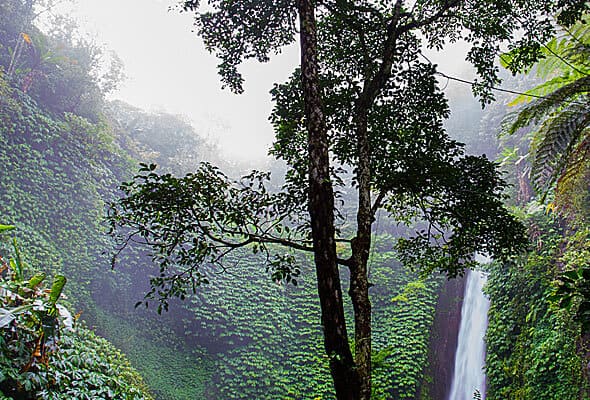
Tridom Project (Tri-national Dja-Odzala-Minkébé)
Description: This project is a transboundary conservation initiative between Cameroon, Gabon, and the Republic of Congo, focusing on the conservation of over 14 million hectares of contiguous forest area. It works to reduce deforestation and protect biodiversity through sustainable land use and law enforcement against illegal logging and poaching. Key Impact: Reduced deforestation, protected biodiversity, and enhanced ecosystem resilience. The project also promotes eco-friendly tourism as a sustainable alternative to harmful forest exploitation. Partners: World Wide Fund for Nature (WWF), governments of Cameroon, Gabon, and Congo.

Mbam et Djerem National Park – Conservation and Community Livelihoods Project
Description: Located in Cameroon, the project aimed at preserving biodiversity in Mbam et Djerem National Park while improving the resilience of surrounding communities to climate change. It involved sustainable farming practices, agroforestry, and capacity-building programs for local farmers. Key Impact: Reduced pressure on forest resources by providing alternative livelihoods, improved food security, and contributed to biodiversity conservation. Partners: Global Environment Facility (GEF), Government of Cameroon, BirdLife International.
Get Climate Resources
What is climate Change?
Evidence
Causes
Effects
solution
BRING YOUR IDEAS
Climate change is a collective fight, do you have suggestion,ideas,projects that could help mitigate climate change? Bring them !
Why you should join us
Why you should join us in fighting agast climate change.
Joining the advocacy for climate change is crucial for our planet’s future. By participating, you can contribute to a collective effort to reduce carbon pollution, which is essential for sustaining our environment. Together with friends, family, and community members, you can raise awareness about the urgency of climate issues, making it more relatable and relevant to everyone. Your voice matters; discussing climate action can inspire others to join in.
Don’t underestimate the impact you can have—join the fight for our planet today!
Climate Services
Climate Finance
Carbon Market
Climate Data
THE AFRICAN CLIMATE HUB (TAC-HUB)
Connecting Communities, Conserving Forests, and Combating Climate Change
Climate Innovations
read about the latest climate innovations,news and events from our website
Education and awareness
We educate People About Climate Change and conservation of flora and fauna
Support us
Donate to fund climate innovations around Africa
